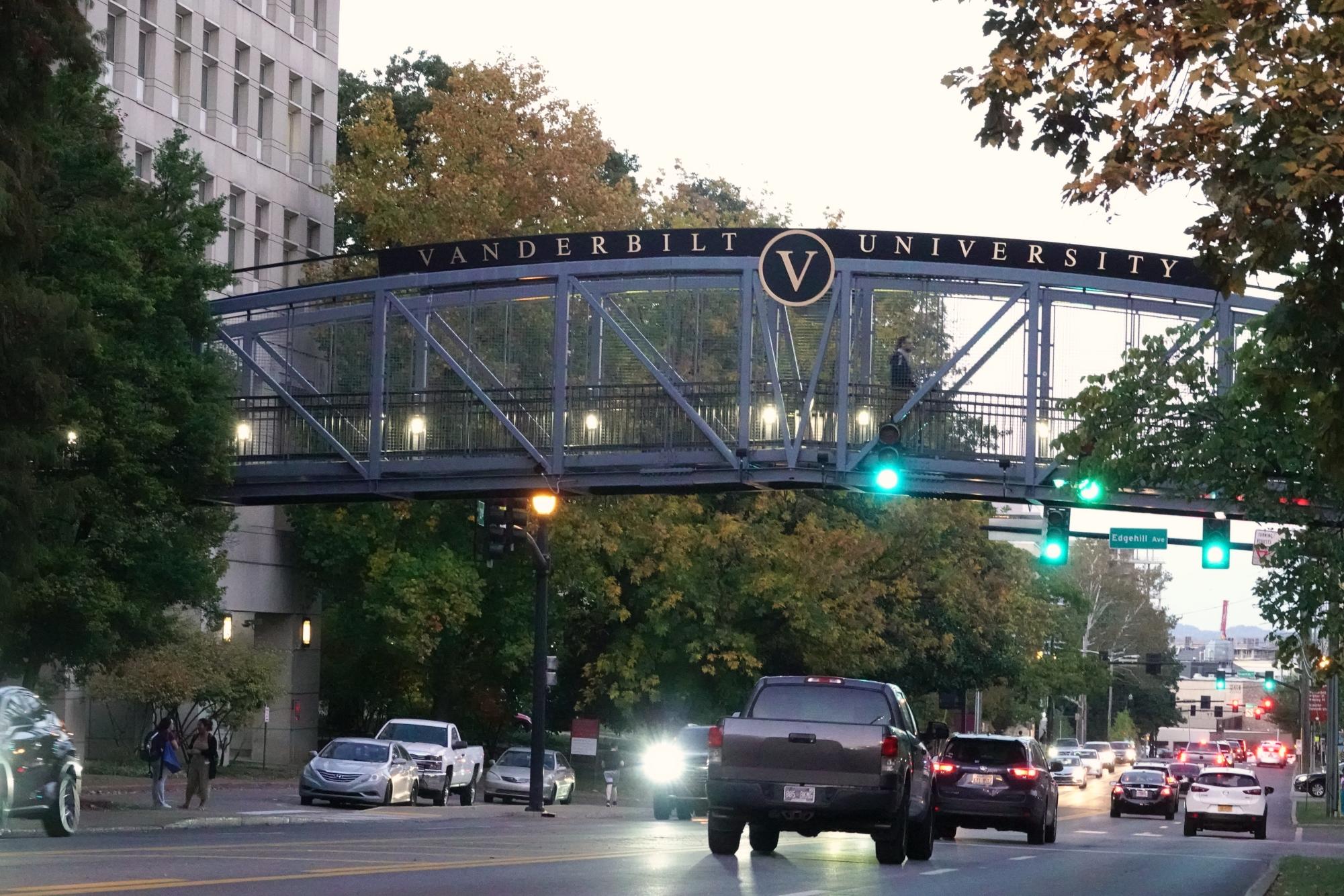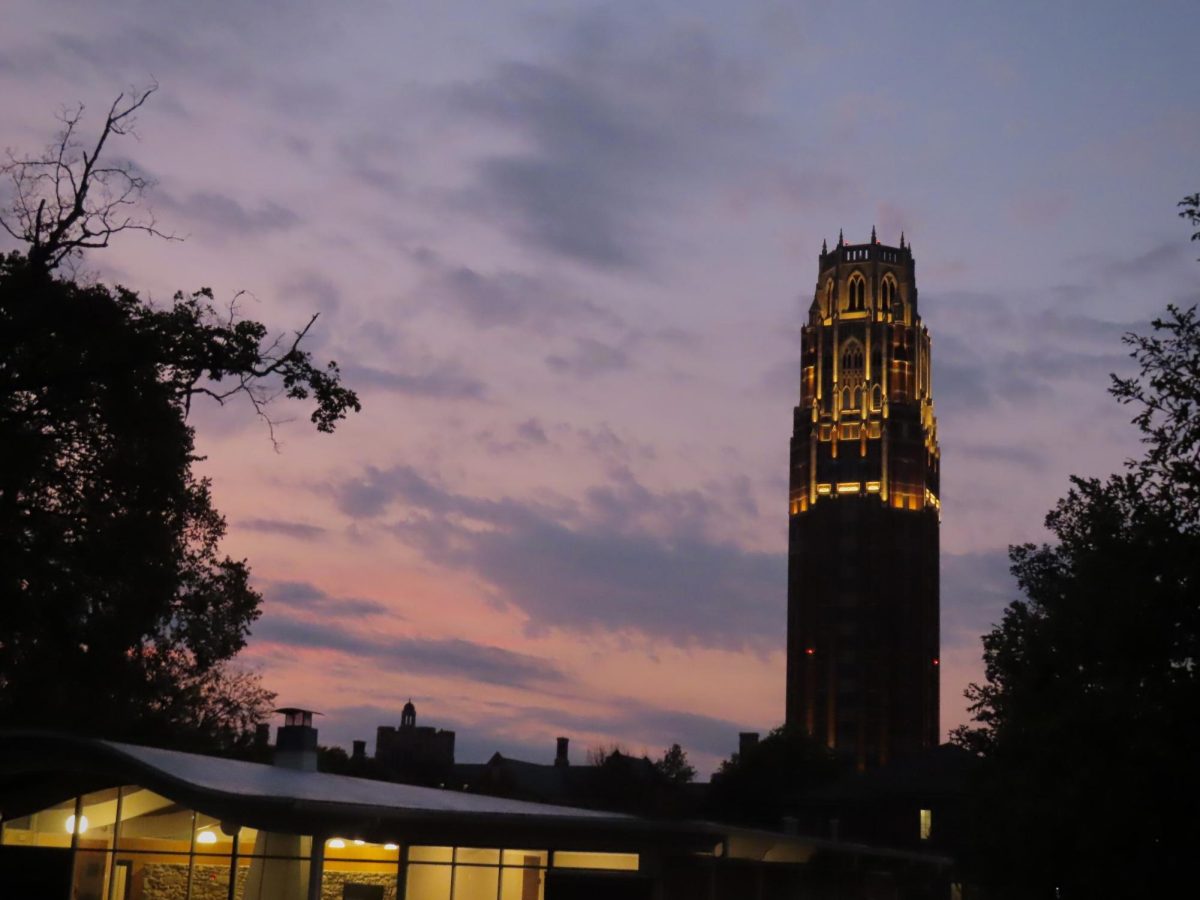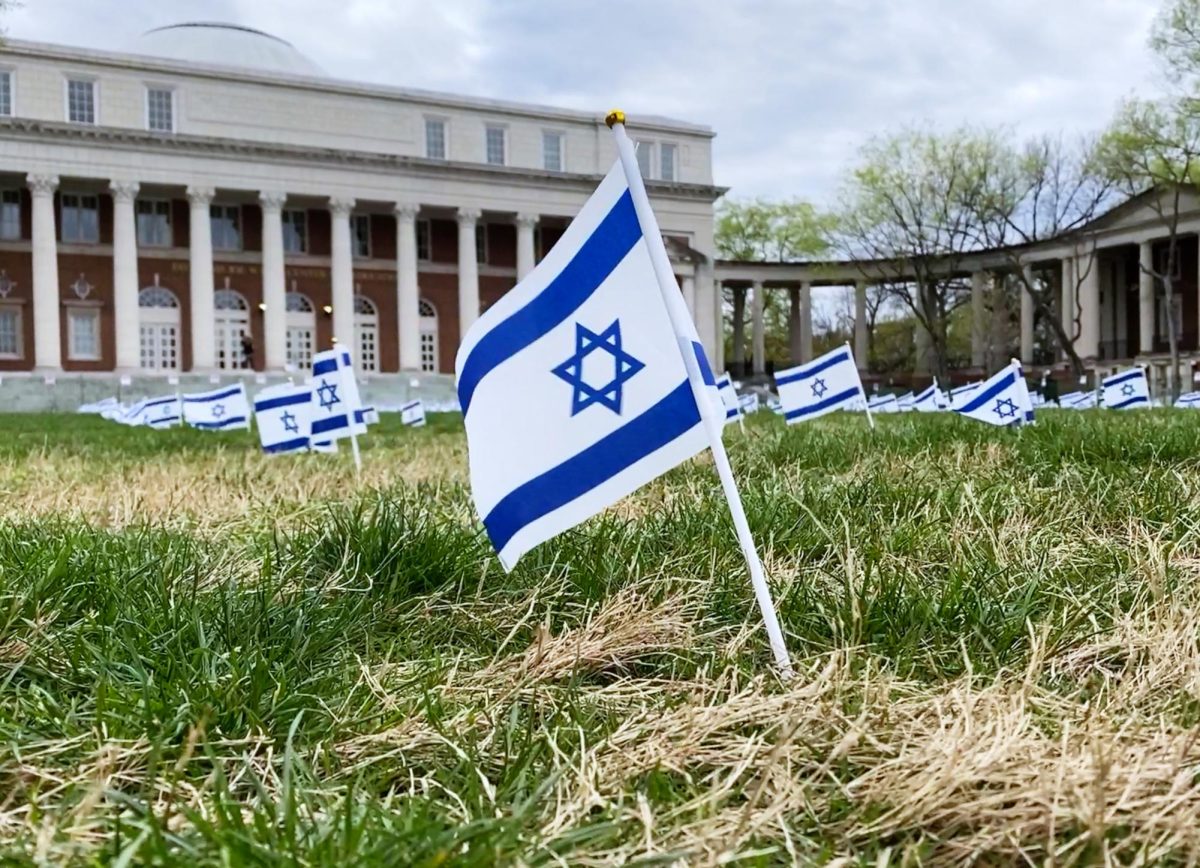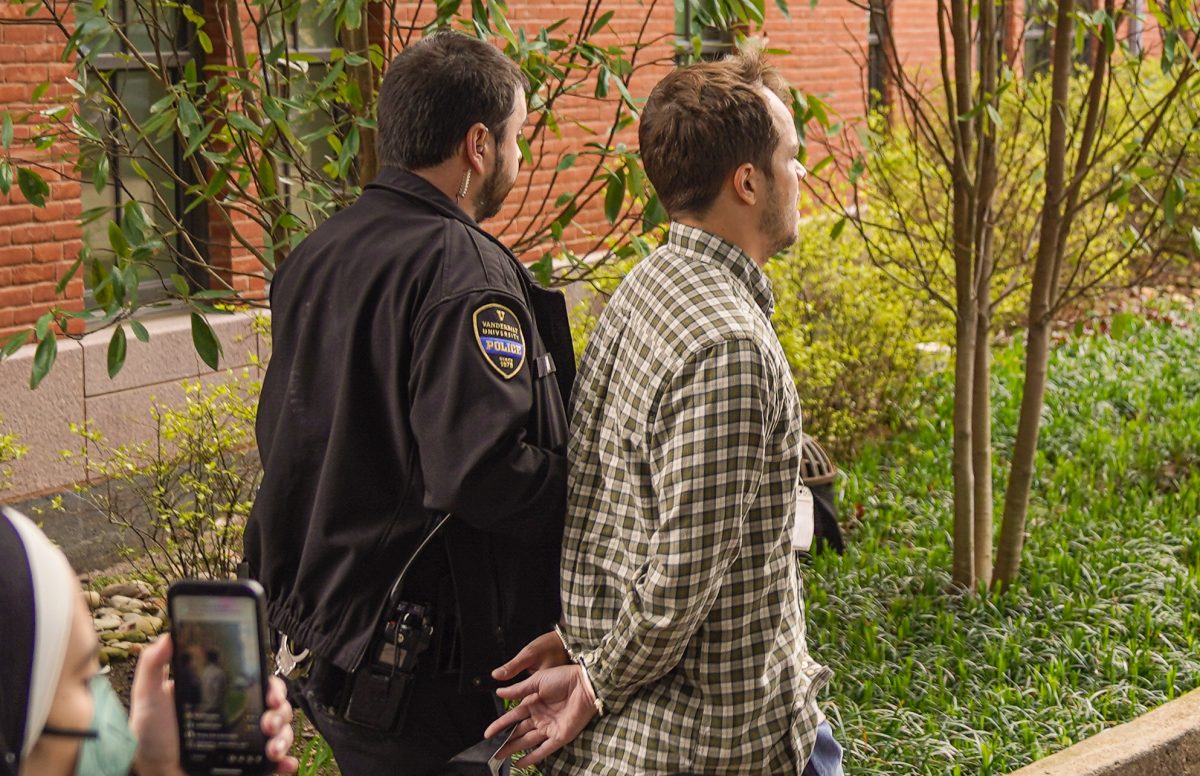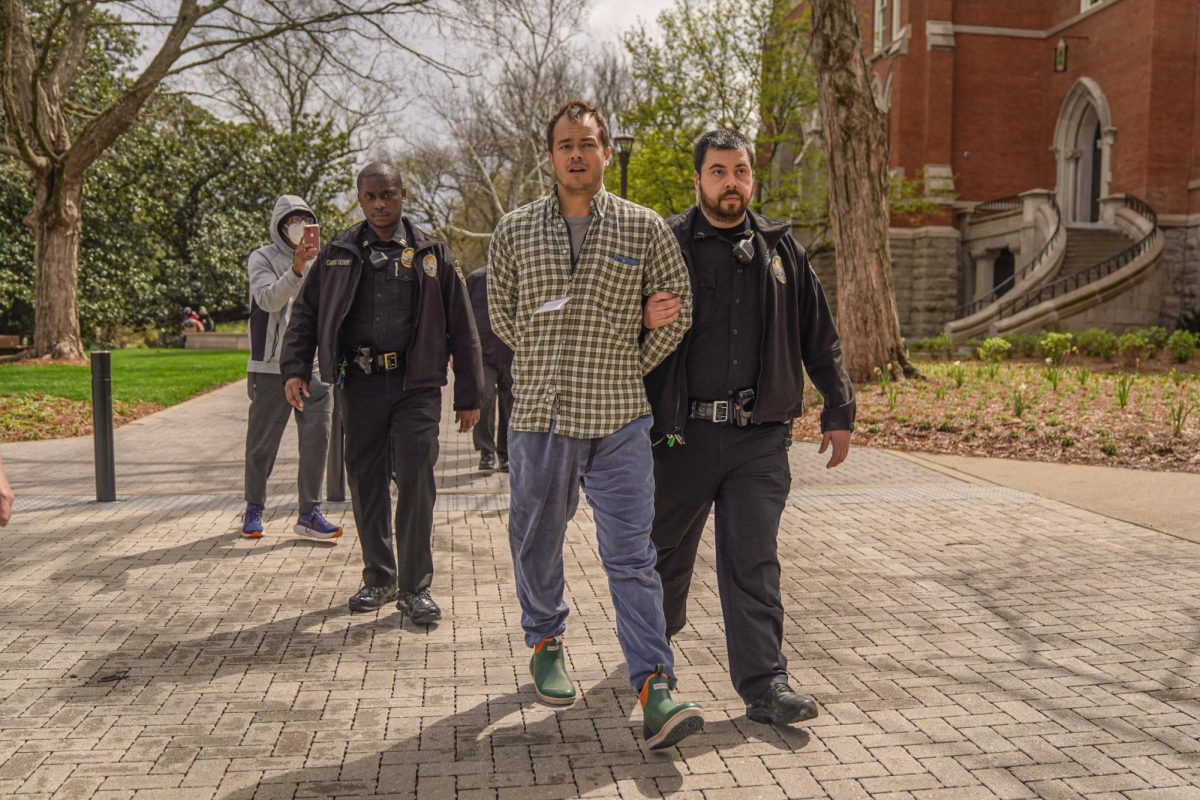As an alum, I’ve paid close attention to the ongoing discourse on our campus regarding the Israel-led genocide in Palestine. I began this essay after The Hustler’s April 11 coverage — “Alumni, faculty open letters criticize student BDS efforts, call for campus civility.” I find much of what I’m reading and seeing alarming, as I can clearly discern that pro-Israel organizations on campus are still relying on the same coercive and misleading strategies that they used during my time at Vanderbilt. To me, it is a blatant continuation of false claims of antisemitism intentionally used to distract from the violence being perpetrated against Palestinians.
As a former president of ‘Dores for Israel, board member of Vanderbilt Hillel and David Project fellow, I am intimately familiar with the pro-Israel advocacy networks and systems of 2014-18. Writing this essay is hard because, in doing so, I must truly confront the ways I caused harm as part of these systems. In fact, the actions requested of me in these roles led me to question Zionism and eventually support Palestinian liberation.
In fact, the actions requested of me in these roles led me to question Zionism and eventually support Palestinian liberation.
Vanderbilt Hillel claims to be a center for Jewish life on campus, but in my experience, it does not include anti-Zionist Jewish students in that community. As a student, I was often told by staff and upperclassmen alike that Jews who supported Palestine were “self-hating Jews.” When I ultimately disagreed with this sentiment as an alum, at the time, I was met with reminders by Vanderbilt Hillel Director Ari Dubin and Vanderbilt Chabad Director Rabbi Shlomo Rothstein that their organizations exist to support Zionist Jewish students. I now realize that these were intentional efforts to conflate Judaism with Zionism, so that any criticism of Israel could be dismissed as antisemitic. This rhetoric made students aware that their acceptance in our campus’s Jewish community was contingent on their support for Israel.
This strategy is clearly still being used today, as incoming VSG Vice President Ellie Kearns, a Jewish student, and incoming VSG President Hananeel Morinville were forced to respond to false claims of antisemitism after showing support to student activists advocating for the Boycott, Divestment and Sanctions movement. Ironically, by conflating Jewish culture with support for Israel, Vanderbilt Hillel and Vanderbilt Chabad are responsible for excluding and targeting Jewish students simply because of their political opinions. As part of this pattern, some students are conflating their discomfort with their Zionist beliefs being challenged with their Jewishness being challenged. Let’s be clear, genocide is not a Jewish value. Protests taking place on our campus should make us all uncomfortable because they point to Vanderbilt’s investment in atrocious violence. As community members, we are complicit if we stay silent.
Protests taking place on our campus should make us all uncomfortable because they point to Vanderbilt’s investment in atrocious violence. As community members, we are complicit if we stay silent.
Perhaps most insidiously, students involved in pro-Israel student organizations were often encouraged to strategically use our friends and campus connections to steer student organizations away from participating in, or even discussing, the BDS movement. In February 2015, in anticipation of Angela Davis’s planned visit to campus, I received instructions from another student and David Project fellow, which read: “Because of Davis’ Ferguson to Palestine message that links the struggles of African Americans to the Palestinians, we are most concerned with the Black Student’s Association’s potential reaction and support of BDS. Please set up an engagement meeting with a member of BSA. It is IMPERATIVE that we make friends with BSA now so they see us as friends, allies, and people they can trust about what BDS really does.” Ultimately, Davis only spoke about domestic issues, rather than the occupation of Palestine. This example is just one instance of the manipulative, and I would argue racist, tactics I observed within Zionist organizing at Vanderbilt.
When students formed ‘Dores in Solidarity with Palestine — now Vanderbilt’s chapter of Students for Justice in Palestine — in 2016, Vanderbilt Hillel staff immediately expressed concern to students, including myself, about the initiation of pro-Palestine advocacy on campus. Taking notes “undercover” at DSP meetings to craft campus Israel strategy was common in Zionist organizing spaces, including Vanderbilt Hillel. Per Hillel International’s standards of partnership, Hillel does not support any programming with organizations that supported the BDS movement. This is alienating to anti-Zionist Jews, and sets the expectations that dialogue and learning cannot take place with people we disagree with. Incidentally, attending these meetings was the beginning of my unlearning Zionism. DSP likely knew what we were there to do yet, they were always welcoming and educational, and I started questioning my involvement with DFI.
The last time I engaged with Vanderbilt Hillel and DFI as an undergraduate was in January 2018 when student organizations brought Palestinian activist Linda Sarsour to campus. Vanderbilt Hillel leaders organized late-night Zoom meetings to coordinate a response. The meeting notes included directions to students to “say that anyone that cosponsors this event is no longer a Jewish ally” and to “convince at-risk campus orgs that partnering with this program would marginalize the Jewish community.” This insistence that anyone who supports Palestinian liberation is against the Jewish people is a distraction technique, — one that is designed to silence criticism of Zionism and Israel.
Ultimately, my personal experiences and observations led me to realize Vanderbilt Hillel and Vanderbilt Chabad solely serve Zionist Jews at Vanderbilt, operating with a clear political ideology. Their actions demonstrate that the provision of religious services and community are subservient to their goal of maintaining a Zionist-friendly campus and administration.
By the time I graduated, I had stopped believing in Zionism, and I had left Vanderbilt Hillel after experiencing its exclusion of anti-Zionist Jews firsthand. It saddens me now to see that, even years after I left campus, these organizations and staff members are still cultivating the same exclusionary environment under the same guise of supporting the Jewish community.
While my Palestinian, Muslim and Black peers have been speaking out about these Zionist organizations and strategies for years, my experience from within the system enables me to confirm and further expose its blatant manipulation. I hope doing so can highlight the existing profound imbalances and help create a campus that truly allows for free speech and student activism. I do not want to continue seeing the same inequality reproduced for another six years. Occupation and genocide anywhere should be protested, no matter who is conducting it.
Editor’s note: Vanderbilt Hillel Executive Director Ari Dubin did not respond to The Hustler’s request for comment. Rabbi Shlomo Rothstein shared a comment with The Hustler on behalf of Vanderbilt Chabad, which is included in full below.
“Chabad at Vanderbilt is a kind, caring, joyous Jewish ‘home away from home’ to which all students are welcome. The majority of Jewish Vanderbilt undergraduates and many non Jewish students participate in Chabad annually. These students represent a wide range of backgrounds, perspectives and needs. Our guiding philosophy is that there is more that unites us than divides us and the work of a peaceful society is to highlight that which brings us together. Focusing on our commonalities rather than our differences can foster understanding, empathy, and ultimately, peace. If any student wants to learn more about Chabad or has questions; we wholeheartedly invite them to meet with us to discover what Chabad can offer them. Please reach out. Warmest regards, Rabbi Shlomo and Nechama Rothstein.”



